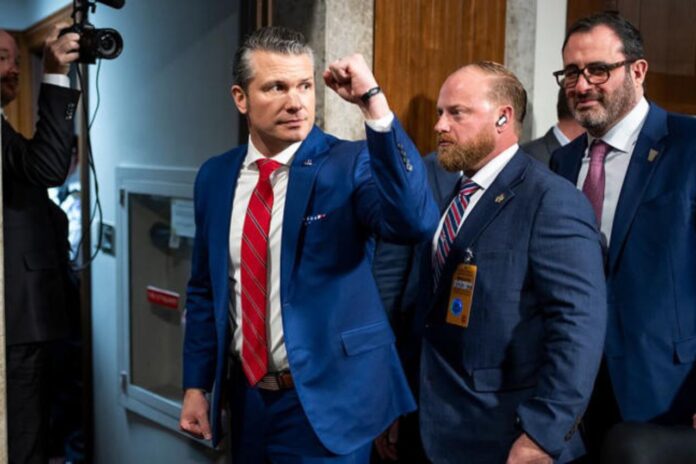In a letter sent to President-elect Trump’s Defense Secretary pick, Pete Hegseth, Sen. Elizabeth Warren (D-Mass.) is making a strong call for transparency and ethics. She’s asking Hegseth’s wife, Jennifer Rauchet, to sell off thousands of dollars’ worth of stock she holds in major defense companies. Why? Because Warren believes it could be a conflict of interest.
Warren points out that Rauchet owns stock in some of the biggest defense contractors—Northrop Grumman, Lockheed Martin, Honeywell, IBM, and Microsoft—plus a range of other large corporations like Google, Oracle, T-Mobile, and Pepsi. Warren argues that this kind of investment raises doubts about whether Hegseth could make unbiased decisions while serving as Defense Secretary, especially when his household has a financial stake in companies that could benefit from the Department of Defense’s spending.
According to Defense Department policies, people appointed to certain roles must avoid holding stock that could create conflicts of interest. Warren’s letter highlights that when someone’s stock holdings exceed $15,000, they’re required to divest from those investments, and Rauchet’s holdings clearly go beyond that threshold.
“These holdings raise serious questions about whether your decisions could be influenced by financial interests rather than the public good,” Warren wrote. “The risk of a conflict isn’t just theoretical—some of these companies have faced allegations of overbilling the DoD by millions of dollars.”
The Trump transition team has yet to respond to the letter, but Hegseth’s nomination is moving forward. As a former Fox News personality and Army National Guard vet, Hegseth has drawn both support and criticism. Democrats, including Warren, have strongly opposed his appointment, citing his past controversies, such as accusations of financial mismanagement at veterans’ groups, a 2017 sexual assault allegation, and reports of heavy drinking on the job—allegations Hegseth denies.
At his Senate confirmation hearing, Hegseth presented himself as a “change agent” free from conflicts of interest. However, Warren is urging him to meet those high ethical standards.
In her letter, she asks Hegseth to agree to one important commitment: if confirmed, he should promise not to work for any defense contractor for at least 10 years after leaving the Pentagon, aligning with the ethical standards set by outgoing Defense Secretary Lloyd Austin.
Warren is also pushing Hegseth to recuse himself from matters involving his former employer, Fox News, and to avoid any lobbying efforts for four years after leaving the Pentagon. She’s concerned about the revolving door between government and the private sector, which, in her view, damages the public’s trust in the government.
“I urge you to take steps to prove to the American people that your service will be in their best interest and not driven by financial gain,” Warren wrote.
In short, Warren is calling for full transparency and ethical responsibility, ensuring that those in charge of critical decisions in the Pentagon can put the country’s interests first. Will Hegseth take these concerns seriously? Only time will tell.





